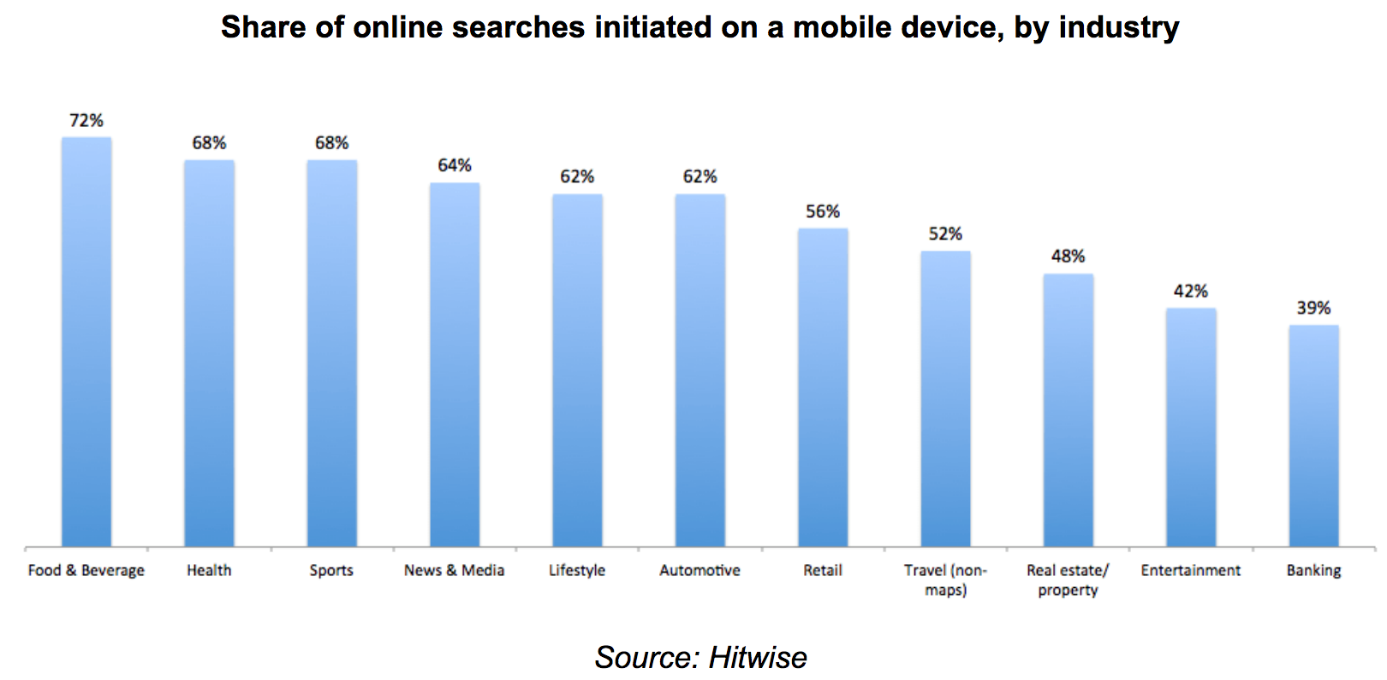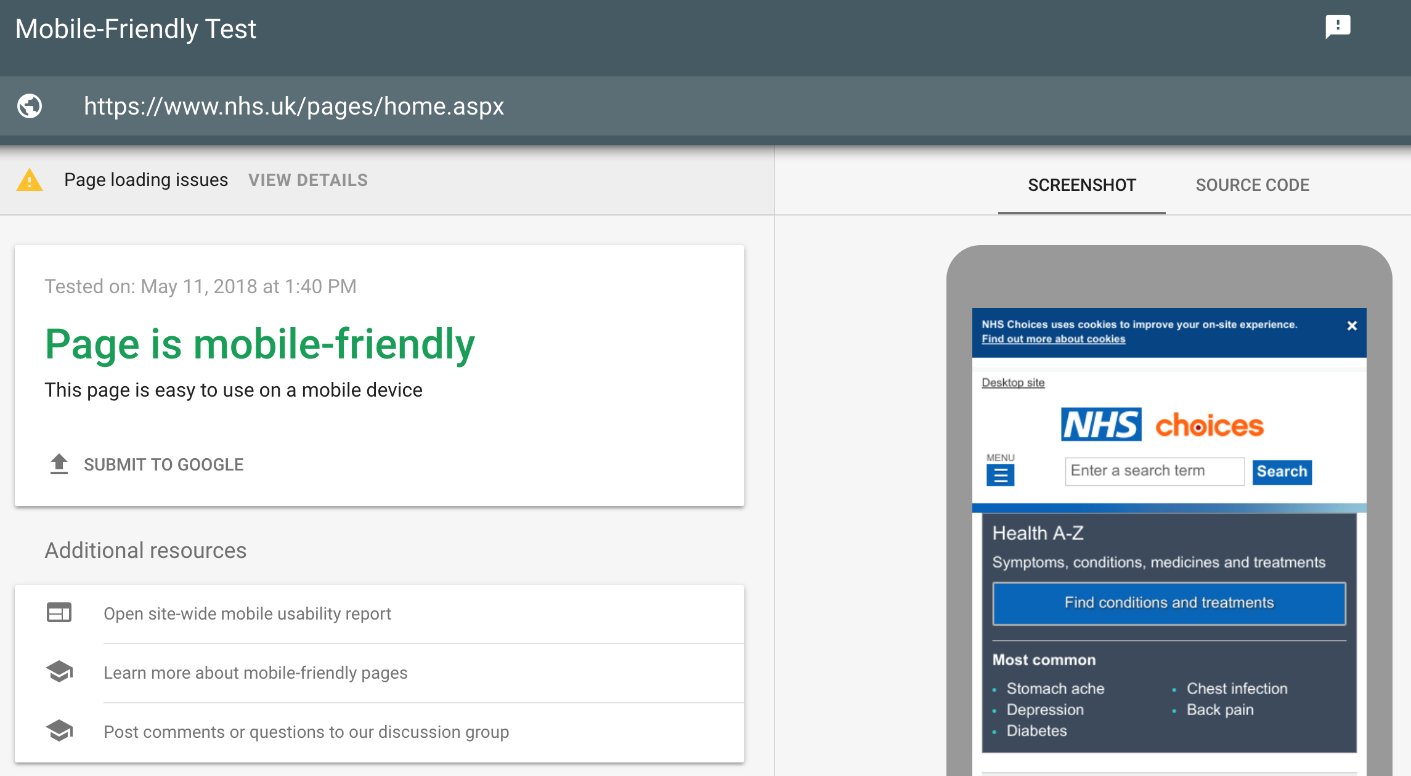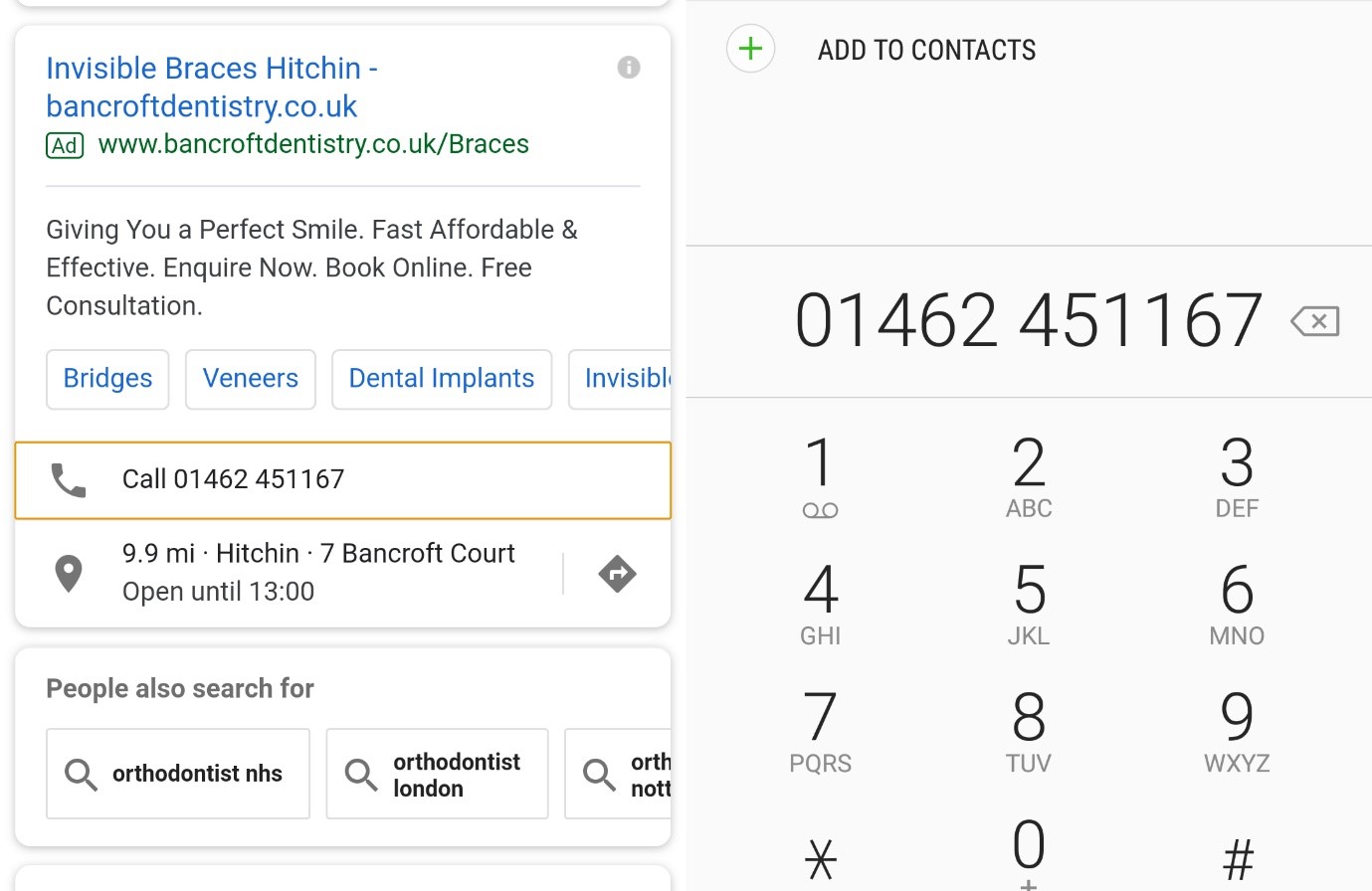4 Ways Mobile is Transforming the Future of Healthcare Marketing
 Mobile phones are integrated into everyday life. In 2017 it was reported by Statista that 95% of homes in the UK have mobile phones and their uses keep increasing. Whether they are being used as cameras, computers or gaming devices, the public use their phones for a lot more than to just calls.
Mobile phones are integrated into everyday life. In 2017 it was reported by Statista that 95% of homes in the UK have mobile phones and their uses keep increasing. Whether they are being used as cameras, computers or gaming devices, the public use their phones for a lot more than to just calls.
As a result of the UK's growing demand for these devices, businesses are having to transform the way they reach their existing and potential customers/patients. This is especially true of the healthcare industry. Mobile has transformed the way that healthcare businesses are marketed, from how websites function to new technology offerings, to making the lives of patients and professionals easier.
Here are just some of the ways marketing in the healthcare industry has changed as a result of mobile.
1) Mobile First
Being mobile-friendly is no longer just an advantage but is now considered a requirement by Google. In 2016 Google started to penalise websites that were not considered mobile-friendly. This is because for the first time ever, mobile searches have overtaken desktop searches and, according to Statista, to date 52.2% of all website traffic worldwide was generated through mobile phones in 2018.

Of these mobile searches, 68% were for businesses in the health industry. All of these figures highlight the importance of ensuring a healthcare provider's website is optimised for mobile.
Here are a few tips to help make a website mobile-friendly:
- Responsive design: The website's design will adjust according to the device, meaning no content is cropped
- Decrease picture size: Decreasing the file size of images will help increase page load time, which is vital for those using their mobile on the go
- Simplify navigation: Instead of having a menu bar across the top of the page, which makes text too small to read and harder to click, a simple drop-down menu will improve usability
- No zoom necessary: Make sure the font size is large enough so that users do not need to zoom in
- Easy to use calls to action: Make numbers clickable, this will stop users having to copy and paste the number from the website to call the business.
Google also offer a handy tool which can check the mobile friendliness of a website. A business will only need to enter their URL and Google will determine if it is optimised for mobile, if not it will suggest necessary improvements.

Google are reportedly moving to mobile-first indexing, this means that it will be the mobile version of websites which will be what appears first in search results: this change is still in its infancy but it is worth making sure that your website has a well-optimised mobile version before this change happens.
2) Pay Per Click (PPC) Advertising – Click-to-Call
Although there has been an increase in patients booking appointments online (from 7.5% in 2016 to 8.7% in 2017), healthcare is still an industry where people prefer to use the phone. The NHS GP Patient Survey revealed that the majority of patients (85.6%) normally book their appointment over the phone. This makes it imperative that a phone number is included on all marketing material and advertising, particularly online.
With more and more people using their mobiles to search, particularly for things categorised in the health industry, as highlighted above, marketers can increase the chances of a conversion for their healthcare client by making the phone number displayed in PPC advertising click-to-call.
Click-to-call is exactly what it sounds like. It is an ad extension which makes the number clickable or adds a call button to paid search ads. When clicked the number either appears in a pop up window with a call button underneath, or the number will be copied into a person's phone, leaving them to simply press the call button contact the business.

It is imperative that return on investment (ROI) can be proven with any marketing activity, and this also applies to PPC ads. Businesses need to know that the budget they are investing in their advertising is bringing in new patients. Call tracking software for healthcare providers tracks all the phone calls that come into the business. The analytics package provided with the software will attribute calls to specific marketing activities, allowing businesses and marketers to see which campaigns have been successful and which have fallen flat.
3) Local SEO
It is reported that 46% of all searches on Google are local, making local SEO important for even healthcare establishments, for it is likely that many potential patients will conduct a search on Google before deciding which doctor or dentist to register with.
Of course, one of the main considerations is locality: the business that’s closest to the searcher's address is most likely to be their choice - this can be achieved through Google My Business.
By ensuring you have a Google My Business Listing, marketers have a better chance of their business appearing Google's ‘3-pack’ - the top three local results that appear in a search engine results page (SERP) when someone searches for a healthcare business. Those in charge of marketing will need to ensure that their client's details, such as name, address and phone number, appears exactly the same across all occurrences online, including any directory listing, their own website and their Google listing.

Directory listings and Google listings also allow users to leave reviews. Not only do reviews improve a business' visibility online but they can also influence potential patients when they are deciding which establishment to choose, particularly if they show up in local searches. Encouraging patients who have had a positive experience to leave reviews on these platforms will increase the chances of attracting new patients as well as instilling trust before their first visit.
4) Mobile Apps
As more and more houses are being built in already densely populated towns and cities, there is a strain on local GPs and their patients. Patients are struggling to get appointments and GPs are finding it impossible to keep up with demand. This is leaving many frustrated and with a negative view of their local surgery, and worse, it is forcing people to put off having medical issues investigated by professionals.
The healthcare industry is trying to address this problem and has found a solution: mobile healthcare apps. There are a number of healthcare apps coming onto the market, for example Ask NHS is an app developed by the National Health Service. It uses an AI 'nurse' called Olivia to check symptoms who then gives an immediate diagnosis based on what the patient enters. If the verdict is that a doctor should be seen, the app will help ensure that an appointment at your local surgery is secured.

These apps help filter minor issues which do not require the attention of a professional and can either be dealt with by a pharmacist or simply by picking up over the counter medication. They also offer help 24/7 so that those who are anxious about an issue on a Friday evening would not need to wait until Monday morning to see a doctor. Instead, they can use the app to determine whether the issue is minor or requires a trip to the local out of hours service or emergency health department.
These apps aren't just useful for initial diagnosis but can also aid patients with monitoring existing conditions. For example, MyCOPD has been created for chronic obstructive pulmonary disease sufferers. It allows them to manage their condition by providing inhaler technique, ways to improve breathing, reduce exacerbations, track medication and more.
These healthcare apps are reducing the strain and backlash the GPs are faced with while stopping A&E departments from being clogged up with minor issues. They are also enabling those who find getting around challenging to get healthcare advice at home, even using some apps to order their repeat prescriptions. Therefore, marketers need to consider app creation as part of their ongoing strategy for healthcare businesses.

 Delicious
Delicious Digg
Digg StumbleUpon
StumbleUpon Propeller
Propeller Reddit
Reddit Magnoliacom
Magnoliacom Newsvine
Newsvine
Comments
Post new comment